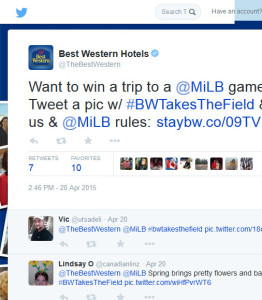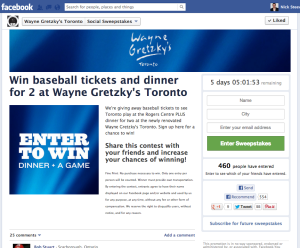Sweepstakes in Canada
Sweepstakes are a form of contest where a prize or prizes may be awarded to a winner or winners. Sweepstakes began as a form of lottery that was tied to products sold. Sweepstakes are used as marketing promotions to reward existing consumers, and to draw attention to a product. By definition, the winner is determined by luck rather than skill. With large grand prizes, they tend to attract more entries regardless of the odds of winning. And work as a good marketing agent.
Sweepstakes in Canada and several European countries require entrants to solve an (elementary school level) mathematical puzzle or answer a (fairly simple) knowledge question, making it (in theory at least) a contest of skill, to overcome requirements that would classify sweepstakes as a form of gambling under their country’s legal definition. There are similar laws in Brazil, usually requiring an answer to an easy “giveaway” question.
Let us learn a few answers to Canadian Sweepstakes before we go further Canadian sweepstakes law, unlike American law, requires that the third component, “winners are chosen by luck,” is removed. Sponsors cannot use pure luck to determine who wins a sweepstake. There must be at least some element of skill involved.
To remove the element of pure chance, sponsors narrow the field of potential winners by requiring a skill-testing question to enter their contests. Every entrant does not have the same chance to win; only those who at least pass the skill-testing question are eligible to win prizes. Of course, this is only a technicality. Most people can pass the skill-testing questions without difficulty, although sponsors are required to make the test somewhat challenging.
What Constitutes a Skill-Testing Question?
An easy math testing question is the minimum required to hold a legal Canadian contest or sweepstakes. Some Canadian sweepstakes go a step further and ask a trivia question or something a bit more difficult. Others are true contests, where the entrants are judged based on their skills.
They are commonly required and administered to potential winners before being declared a winner as one way to avoid the illegal lottery offences of the Canadian Federal Criminal Code.
Can a purchase be required to enter?
Many promoters elect to include a “no purchase required” entry option for Canadian contests. This is because, the illegal lottery offences of the Criminal Code generally prohibit games of chance (or mixed chance and skill) where contestants pay money or other consideration (i.e., something of value) to win a prize.
That is, an “illegal lottery” generally speaking consists of three things: purchase/consideration, chance / mixed chance and skill, and a prize. Eliminating a purchase requirement (commonly together with including a skill-testing question) is a common strategy for avoiding these illegal lottery Code offences.
What are pure skill contests?
Some promoters operate “pure skill” contests and/or award prizes such as cash or intangibles such as trips, as one strategy to require a purchase as a condition of entry.
What are the main types of contests?
Generally speaking, there are two types of contests: “skill contests” or “consumer generated content contests” and those where prizes are awarded randomly. Some of the types of “skill contests” include judged essay or art competitions, sporting events, sales competitions, etc.
Some common types of random draw or selection contests include contests where winners are selected at random through a draw held by the promoter, instant win type winner selections, “prize vaults” where entrants are given numbers or codes to enter, seeded games (i.e., where a certain number of prizes are “seeded” in products), scratch-and-win type promotions where entrants see whether they have won a prize, etc. Sometimes promoters prefer random draw contests, which are generally relatively easy to prepare and run.
What laws apply to contests?
The basic legal requirements for contests in “common law Canada” (i.e., provinces and territories excluding Quebec) are to ensure that: promotional materials are not false or misleading (to comply with the misleading advertising sections of the Competition Act); short and long rules setting out the terms and conditions for the contest (to comply with mandatory statutory disclosure set out in the Competition Act and to have agreements with entrants); to avoid the Criminal Code’s illegal lottery offences (e.g., through “no purchase required” entry options and skill-testing questions as discussed above); and to take basic precautions to comply with Canadian privacy laws (e.g., consent for the collection of any personal information, disclosure of what the information will be used for, etc.).
In some cases other rules or laws can be relevant, such as social media site’s terms of use (e.g., Facebook’s promotions rules) or intellectual property laws (e.g., for contestants are generating original material as part of the contest, where third party images, trademarks or logos are being reproduced, etc.). Also, Quebec has some specific requirements that must be met if a contest will be open to Quebec residents.
Are contests illegal in Quebec? Why do contests commonly exclude Quebec?
Contests are not illegal in Quebec – there are just a few additional requirements that need to be met in addition to those required for the rest of Canada.
These include: filing the rules and creative copy 30 days before contest launch (though late filings are possible and fairly common); translating contest rules; paying a duty to the Regie in Quebec (which depends on where the contest is open, but if Canada-wide is 3% of prize value); and a filing on the completion of the contest with a notice of prize awards, winners, etc.
There is also some specific language that needs to be included in contest rules for contests open in Quebec and it can also be prudent to run a contest concept by Quebec counsel before launching a promotion to check any other specific requirements in Quebec.
The List of Products in Sweepstakes

Automobiles, Cash, Computers, Electronics, Entertainment, French Contest, Home Products, Kids Toys and Games, Sports, Trips (American, Canadian, European, Caribbean)
Types of Contests in Sweepstakes
There are several online contests and sweepstakes. You can browse and save your favourites and manage what to play or not.
Single Entry Contest
Single-entry sweepstakes are quick and easy to enter. You don’t have to remember to come back every day or every week; once you’ve submitted your entry, you can forget about the sweepstake until the winner is drawn. Each person (or household, computer, or IP address) can enter one time only. This means that everyone who enters has the same chance to win. These are great sweepstakes if you don’t have much time to sweep or to enter for prizes that you’d like to have but aren’t wild about.
Weekly Entry Contest
Sweepstakes that you can enter every week are more rare than either one-time or daily sweepstakes. Because their entry period is more irregular, it is harder to remember to enter these weekly. This does, however, increase your odds over people who enter them once or twice.
Monthly Entry Contest
Monthly sweepstakes invite sweepers to come back and enter every month. They might hold a drawing each month, or they could save all the entries for a grand prize drawing after the sweepstakes expires.
Either way, they tend to be ignored by many sweepers and therefore have better chances of winning for people who enter regularly.
Unlimited Entry Contest
Unlimited entry sweepstakes allow you to enter as often as you want. Unless you have an awful lot of time to dedicate to entering these sweepstakes, these will have high odds of winning.
Ongoing Sweepstakes
Ongoing sweepstakes can fall under any of the above categories, but they have no set expiration date. They continue indefinitely until the sponsor announces that the sweepstakes is over. They usually award prizes at set intervals throughout the giveaway, such as weekly or monthly.
Odd Entry Contest
Odd entry sweepstakes are sweepstakes with irregular entry periods. For example, an odd entry sweepstakes might let you enter every two weeks, or it might have entry periods of varying lengths, where one entry period lasts for a week and the next for 12 days.
Odd entry sweepstakes have entry frequencies that don’t fall under one of the regular entry periods.
- Sweepstakes that you can enter once every two weeks or every three days.
- Sweepstakes where you can enter after every participating NASCAR race, where the races don’t take place every week.
- Sweepstakes that you can enter once per entry period, and the entry periods are irregular. One entry period may last a week, the next only a few days, and the next, two or three weeks.
- Sweepstakes where the entry period depends on something else: for example, the rules might allow you to enter once per child, or once per room in your home, or once per recipe category.
Advantages and Disadvantages of Odd Entry Sweepstakes
- It can be difficult to remember to enter odd-entry sweepstakes every time that you’re allowed to. It takes some effort to ensure that you receive your maximum entries, thus maximizing your odds of winning.
- On the other hand, your competition has the same problem. If you want to win, making the effort to maximize your entries could give you an edge over other entrants who aren’t as dedicated.
Daily Entry Contest
Daily sweepstakes give you additional chances to win for every day that you enter. If you are committed to entering daily sweepstakes regularly, you have a much higher chance of winning than most people, who enter a couple of times and forget about the sweep.
However, entering daily takes time and dedication.
Miscellaneous Contest:
Shopping Spree, 24-hour Contest, Gift Certificates, Gift Baskets etc
Sweepstakes Organized by Prize
Just about any imaginable prize can be won by entering sweepstakes. Some prizes are universally attractive – after all, who wouldn’t want to win cash or a new house? Others might not interest some people – international vacation sweepstakes for people who don’t like to fly, or car sweepstakes for people with no driver’s license. Therefore, sweepstakes organized by prize make it easy to find exactly the prizes you want to win.
Some common prize categories include:
- Car Sweepstakes
This is one of the big sweepstakes prizes that just about anyone would love to win. Car sweepstakes give you the chance to win a new car, truck, boat, or other vehicle.
- Cash Sweepstakes
The most flexible of prizes! Enter to win cash or other forms of money like gold coins and credit card gift cards.
- Vacation Sweepstakes
Win a trip to an exotic destination or a getaway closer to home.
- Electronics Sweepstakes
If you love staying on top of the latest gadgets, these sweepstakes are for you.
Social Media Sweepstakes
Social media websites are becoming the most popular way for people to communicate online. It’s no surprise, then, that more and more companies are running their sweepstakes on social media platforms. If you want to enter many of the big giveaways going on today, you need to become familiar with these sites and how to use them safely.
Twitter Sweepstakes

Twitter is a micro-blogging platform that lets people communicate in short messages of 140 characters or less.
- Advantages: Not all sweepers have jumped on the Twitter bandwagon yet, meaning that your odds of winning are high. Entry is usually very easy. Most of the time, you just need to send a short message with a specific hashtag attached.
- Disadvantages: You have to be careful that the sweepstakes you are entering are legitimate. There is a learning curve for using Twitter, and it might seem difficult to use at first (though it’s very easy once you get the hang of it).
Facebook Sweepstakes

Facebook is a very popular social media website, where you can follow friends, family members, and your favorite companies and share photos, comments, and more.
- Advantages: Fewer people tend to enter sweepstakes on Facebook than online sweepstakes, so the odds of winning may be good.
- Disadvantages: To enter Facebook sweepstakes, you usually need to “like” the company’s pages, and sometimes you need to allow applications access to your Facebook account. Be sure to Remove Facebook Applications that you’re not using anymore.
Pinterest Sweepstakes

Pinterest is a social bookmarking site where you can “pin” images from websites for inspiration and to remind yourself to return to the site. Unsurprisingly, many companies are hoping that you’ll pin their images to buy later or to come back and visit again — and they’re rewarding you for pinning their images with sweepstakes prizes.
- Advantages: Pinning images is quick and easy, and you don’t have to worry much about privacy issues.
- Disadvantages: You need to be careful what you pin. Some people and companies do not want their images shared without permission, and doing so can violate copyright law. You’re pretty safe sticking with images that you have taken yourself, companies that have “Pin It” buttons on their sites, and the images that sweepstakes sponsors make available for entering their sweepstakes.